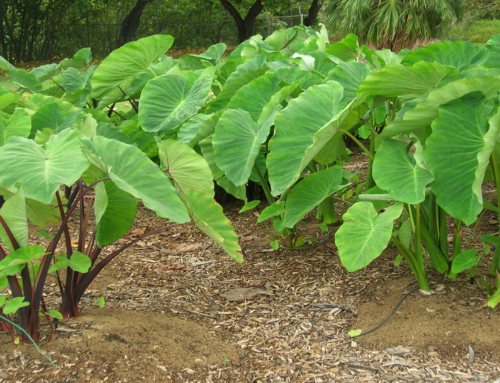Health Benefits of Collard Greens
Collard greens are moderate source of Dietary Fiber: 100 g edible portion of collard greens contain 4.0g of dietary fiber. Dietary fiber is good for human body. High fiber foods is good for weight loss as they take long time to get digested and also make you feel full for a long period of time. High fiber food aids in digestion, cures constipation, lowers blood cholesterol, cleanses the gastrointestinal tract and may reduce the risk of developing diabetes and colorectal cancer.
Collard greens are an excellent source of Vitamin A: Collard greens are rich in Vitamin A; 100 g of edible portion contains 5019 IU of Vit.A. According to U.S. FDA (Food and Drug Administration), daily value (DV) of Vitamin A is 5000 IU (international unit). Vitamin A is essential for eye health and also for strengthening body’s natural immune system. Vitamin A is also essential for tissue building, and for the formation of RBCs (red blood cells), skin and bones. Deficiency of Vitamin A results in night blindness, and drying of skin and eyes.
Collard greens have moderate amounts of Vitamin E: Collard greens contain moderate amounts of Vitamin E also. It is a powerful antioxidant vitamin which helps in formation of new blood vessels and also increases body’s natural immunity.
Collard greens are an excellent source of Folate: According to U.S. FDA (Food and Drug Administration), daily value (DV) of folate is 400mcg (micrograms). 100 g edible portion of collard greens contain 129 µg (mcg) of folic acid. It is essential for energy production from food. It helps in synthesis of nucleic acids and proper functioning of immune system and blood production by facilitating functioning of iron and increasing production of RBCs. It also helps in controlling amino acid metabolism.
Major deficiency symptoms include birth defects in new born babies, diarrhoea, hearing loss due to ageing, improper functioning of immune system, weakness, fatigue and headaches. Regular consumption of folic acid helps in slowing down progression of hearing loss with ageing; to prevent birth related defects in new born babies; for protection from cancer, heart diseases, depression and degeneration of body due to ageing; and to prevent memory loss and osteoporosis
Collard greens are an excellent source of Vitamin K: According to U.S. FDA (Food and Drug Administration), daily value (DV) of Vitamin K is 80mcg (micrograms). 100g of edible portion of collard greens contain 437.1 mcg (micrograms) of Vitamin K. Vitamin K is essential for the formation of strong bones, for blood clotting, and for preventing heart diseases, cancer, and osteoporosis. Vitamin K deficiency results in bleeding gums and bleeding nose.
Collard greens are a good source of Vitamin C: 100g of edible portion of collard greens contain 35.3mg of Vitamin C. According to U.S. FDA (Food and Drug Administration), daily value (DV) of Vitamin C is 60mg (milligrams). It is a powerful antioxidant vitamin. Vitamin C helps in absorption of iron and calcium and also increases body’s natural immunity. Vitamin C deficiency results in a disease called scurvy. Major symptoms of scurvy are bleeding gum, joint pain, and hair loss.
Collard greens contain moderate amounts of Calcium: 100 g edible portion of collard greens contain 232 mg of Calcium. Major functions of Ca are blood clotting, nerve impulse and muscle contraction, and protection of bones from thinning. Calcium promotes bone health and teeth health. Calcium deficiency results in weakening of bones, rickets in children, tooth decay and pains in legs and back of the body.
Collard greens contain moderate amounts of Potassium: Potassium is an essential mineral that plays an important role in lowering blood pressure.
Food Uses of Collard Greens: Raw tender leaves are used in salads while mature leaves are used as a leafy vegetable. However, age of leaves does not affect flavour and taste of the food dish. Like any other leafy vegetable, collard greens can be cooked as stir-fries and used in soups and stews.
Health Benefits of Mustard Greens
Mustard greens are rich in anti-oxidants and are considered as “Superfoods”. Mustard greens helps in purifying blood and is also good for healthy functioning of liver. Mustard greens are rich in dietary fiber and helps with digestion process. These leafy vegetables are good for lowering bad cholesterol content in our body. Mustard greens are rich in Vitamin C which is essential for immunity building. Mustard greens improve skin and eye health. It can also improve bone and teeth health as it is rich in Calcium. A detailed account of major health benefits of mustard greens in as given below:
Mustard Greens are rich in Moisture: 100 g edible portion of mustard greens contain 90.7g of moisture/water. Due to high moisture content, it is good for preventing excess body dehydration. Body needs water to regulate the body temperature and for transporting nutrients, removing bodily toxins and waste, and for protecting body organs. A dehydrated body accelerates the ageing process. When body is dehydrated it results in energy loss, headaches and fatigue.
Mustard Greens are rich in Dietary Fiber: 100 g edible portion contain 3.2g of dietary fiber. Dietary fiber is good for human body. High fiber foods is good for weight loss as they take long time to get digested and also make you feel full for a long period of time. High fiber food aids in digestion, cures constipation, lowers blood cholesterol, cleanses the gastrointestinal tract and may reduce the risk of developing diabetes and colorectal cancer.
Mustard Greens are rich in Vitamin A: It is essential for eye health and also for strengthening body’s natural immune system. Vitamin A is also essential for tissue building, and skin health. Deficiency of Vitamin A results in night blindness, and drying of skin and eyes.
Mustard Greens are rich in Folate: It is essential for energy production from food. It helps in synthesis of nucleic acids and proper functioning of immune system and blood production by facilitating functioning of iron and increasing production of RBCs. It also helps in controlling amino acid metabolism. Major deficiency symptoms include birth defects in new born babies, diarrhoea, hearing loss due to ageing, improper functioning of immune system, weakness, fatigue and headaches. Regular consumption of folic acid helps in slowing down progression of hearing loss with ageing; to prevent birth related defects in new born babies; for protection from cancer, heart diseases, depression and degeneration of body due to ageing; and to prevent memory loss and osteoporosis.
Mustard Greens are rich in Vitamin K: It is essential for blood clotting, and for preventing heart diseases, cancer, and osteoporosis. Vitamin K deficiency results in bleeding gums and bleeding nose.
Mustard Greens are rich in Vitamin C: It is a powerful antioxidant vitamin. Vitamin C helps in absorption of iron and calcium. It increases body’s natural immunity. Vitamin C deficiency results in a disease called scurvy. Major symptoms of scurvy are bleeding gum, joint pain, and hair loss.
Mustard Greens are rich in Iron: Iron is essential for RBC (red blood cell) formation and transfer oxygen between the tissues and within the blood. Red colour of blood is due to the presence of iron in it. Iron is essential for increasing body immunity and also for the synthesis of neurotransmitters. Iron deficiency results in anaemic appearances, increase in heart rate and breathing, poor immune system, yellowing of the body and severe headaches. Dark green leafy vegetables and leguminous vegetables are good sources of iron.
Mustard Greens are rich in Potassium: Potassium is an essential mineral that plays an important role in lowering blood pressure
Mustard Greens are rich in Calcium: Major functions of Calcium are blood clotting, nerve impulse and muscle contraction, and protection of bones from thinning. Calcium promotes bone health and teeth health. Calcium deficiency results in weakening of bones, rickets in children, tooth decay and pains in legs and back of the body.







Leave A Comment
You must be logged in to post a comment.